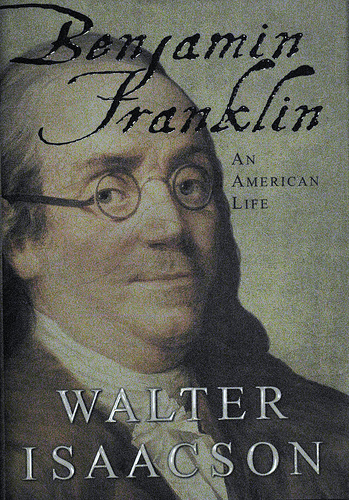The basic quality that any great story must have is a story that illustrates the human condition. – William Shatner

The story of Ben's life illustrates the human condition. It is, most definitely, a great story, and a great life.
What does that mean?
While this quote is about telling a story, I’m going to use an old quote from Ben Franklin and discuss this quote in terms of living the story, or writing it about someone else. The quote says that the heart of any great story is how it shows the human condition.
By that, we have to have something passionate about the story. A love or hatred of something (or someone). The pursuit of something (a dream, a goal, a person). The failings of humans (betrayal, lies, deceptions). Conflict between people (or ideas, ideals, emotions). Overcoming an obstacle (poverty, despair, hatred).
Why is living your story important?
Whether it’s a story by you, or about you, I want to make sure we understand the definition. The term ‘story’ can be any number of things, including an un-truth you tell yourself to disguise, hide, or obscure something painful. That is emphatically not what I want this to be.
For the purposes of this post, the story is what actually happened. Or at least as close to it as anyone can manage to remember. As always, certain allowances should be made for the purposes of artistic license. But the point is to be as truthful as possible.
To me, the reason your story is important is because everyone has something to teach. We all can learn something from one another. If we make a point of learning something from each person we meet, we can become so much richer in knowledge and spirit.
If we also teach that person a thing or two, their story becomes more as well. They learn something, and you get practice teaching. Everyone wins. Humanity, specifically the two of you, have become more than you were before, and the world will never be the same.
Where can I apply this in my life?
Now I don’t think anyone needs to go out and start with the failings of humans (and betray someone), or start conflict just for the point of having a more interesting or compelling story. There is plenty of that in the world already.
Instead, one could find a situation where there has been human failing, and try to be of some assistance. That could be helping the person who didn’t quite manage to get it right. I would recommend against pointing out their failings, as they are probably already aware of them.
Instead, I would recommend giving them hints on what they might have done differently, how to steel themselves against their temptations, or what they might do to strengthen their character and to make the right decision their normal reaction.
In this manner, you have some human failing in your story, without having to contribute to mankind’s misery. Similar paths can be taken for conflict and most any other negative situation that could make a story more interesting to tell, or to hear.
There are also positive situations. While you can easily be the star of this section of your story, you only serve as an example or as a hero. If you are part of the supporting cast in someone elses’ story, you not only teach them, but you teach all who read or hear the story afterward.
Will you help them pursue their dreams? What can you teach them to help? Do they need a technical skill (such as welding)?o they need a life skill (such as tenacity)? Do they need shelter from the storm of life (or of their own making)? What can you do to inspire them?
What about helping them overcome obstacles? Or can you help them go around the obstacles, or even avoid them, if you know a path that avoids them completely? Can you teach them techniques or methods to minimize the time, effort, or cost? What else can you do to support them?
In case you didn’t notice, this is really a post about being a supportive parent. Where you take this, of course, is up to you. I believe this post applies equally well to your children, someone elses’ children, strangers, friends or lovers. It works as well in living the story as it does in the writing of a story. It works for fiction and real-life drama.
As Ben said in the quote linked to above, “Either write something worth reading or do something worth writing about.” That, I would say, is good advice.
From: an interview, 1/3 down – http://www.doorly.com/writing/william_shatner.htm
confirmed at : http://www.brainyquote.com/quotes/quotes/w/williamsha269038.html
Photo by DBduo Photography
Happy Birthday to William Shatner, born 22 March, 1931.
